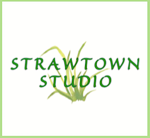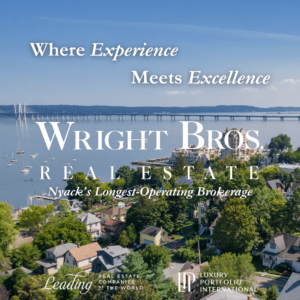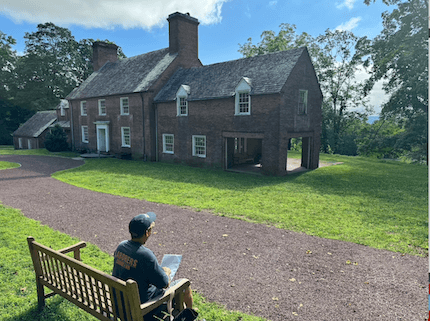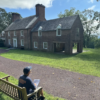by Susan Hellauer
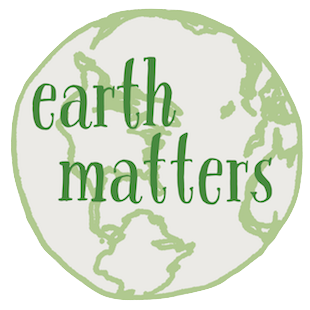 Earth Matters focuses on conservation, sustainability, recycling and healthy living. This weekly series is brought to you by Green Meadow Waldorf School, Maria Luisa Boutique and Strawtown Studio.
Earth Matters focuses on conservation, sustainability, recycling and healthy living. This weekly series is brought to you by Green Meadow Waldorf School, Maria Luisa Boutique and Strawtown Studio.If Earth Matters to you, sign up for our mailing list and get the next installment delivered right to your inbox.
Welcome to Nyack: Tree City USA
That designation was earned four years ago from the Arbor Day Foundation, and the Village Of Nyack has upped its commitment to growing and maintaining a “community forest” ever since. Nyack’s second season of public tree planting begins in April, with bare-root trees specially selected for Nyack’s climate, soil and streetscape.
The Nyack Village Tree Committee, chaired by Marcy Denker, is rolling up its sleeves for this project, and it needs volunteers to help plant and water the trees, and keep an eye on them as they grow. What will these leafy beauties give us in return? A long list of environmental benefits, less stress, better health and more community spirit.
This year’s project: fill in the blanks
A 2015 Nyack tree inventory counted 950 trees in public areas, and pinpointed 500 potential locations for new ones.
Last year’s 12-tree planting project hopped around the village—a tree here and a tree there, including Memorial Park. But this year’s 21-tree effort will target Midland Ave between High and Sixth Avenues. For such a well-treed village, it’s a bit of a blank spot. “All along that stretch on the east side there are no overhead wires,” Denker told me, “but a lack of trees and shade.”

Nyack sugar maple, Oak Hill Cemetery
. Photo: Elijah Reichlin-Melnick
The trees are put on a truck coming downstate to deliver to many locations. “We had a three-week delivery-time window last year, and that was a challenge,” Denker explained. This year, her team of volunteers and employees of the Nyack DPW will do much of the planning and prep ahead of the April 19-20 delivery date, and will be ready to pop the trees quickly into their planting holes.
Little trees, big community-forest tech
Some of Nyack’s sidewalk tree lawns measure a scant 18 inches wide. Even a petite ornamental’s roots with nowhere else to go will eventually wreck the sidewalk, or shrivel and die. But some high tree-tech is changing all that in Nyack. Scientists at the Cornell University Urban Horticulture Institute Lab have developed “structural soil”—a special mix that lets roots grow under a sidewalk without heaving it up to send a texting dog walker flying. Replace a panel or two of sidewalk with advanced drainage-promoting pavers and shade trees can go where no shade trees have gone before.

DPW’s Jose Magana installing a tree root barrier. Photo: Marcy Denker
“There’s someone who’s been asking for years for a tree in front of her house, so she doesn’t have to look at a traffic light,” said Denker. “And it just so happens this pilot project is right there.”
What else is different about this year’s program? “We’ve got more trees and we need more volunteers—we’ll take as many as we can get,” Denker said. This year’s location is concentrated, so the heaving and hauling of the bare-root babies will be less onerous. The Nyack High School football team will pitch in with the advance work of getting turf removed and soil loosened on Saturday April 8th.
Planting days will be nailed down soon. Able bodied volunteers are all welcome and if you’ve got a pickup truck, the tree team will be especially happy to see you.
But if digging and planting are not your style, Denker said that helping to keep trees watered after planting is another great way to be involved.
Diversity: always a good thing
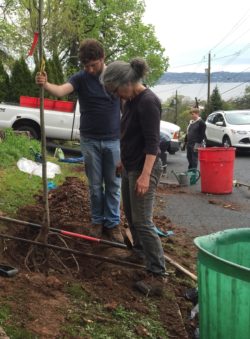
Scene from 2016 planting. L.-r.: Elijah Reichlin-Melnick, Marcy Denker and Tomas Macio. Photo courtesy Marcy Denker
The 2015 inventory also revealed that 20% of Nyack’s tree stock are maples. Most of these are the invasive Norway species, which multiply like mad and are notorious for their shallow, sidewalk-ripping roots.
But it’s not just the maples’ bad manners at issue. Lack of diversity is as dangerous in a village’s shade tree population as it is among wildlife and food crops. Blight and insect pests typically target a single species and can quickly wipe out a municipality’s non-diverse tree canopy, as Worcester, Mass. learned in 2008.
This year’s shade-tree shipment will include a variety of trees (no maples!), selected for their size, density, harmonious growth habits and street hardiness. Among the larger shade trees, we’ll see lindens, new elm cultivars, and Turkish hazelnut; space-challenged locations will get the ornamental Japanese tree lilac and Sargent cherry.
Arbor day: 4/28 (save the date)
To get and keep its Tree City USA honorific, a municipality must meet per-capita tree expenditure standards (among other goals) and hold Arbor Day celebrations. This April’s event in Memorial Park will recognize the American linden trees that were part of Nyack’s original World War I memorial (2017 marks the 100th anniversary of the U.S.’s entry into “The Great War.”) The Nyack Park Conservancy will organize the Friday festivities, which will feature tree plantings.

Memorial Park tree planting, Arbor Day 2014, with Nyack High School students and teacher Tom Perry [kneeling, right] . Photo: Marcy Denker
For its first celebration in 2014, Nyack’s Tree Committee organized Nyack High School students for a park planting of five native trees along Nyack Brook where it emerges from the culvert. Waterside trees prevent erosion by stabilizing the bank and help cleanse street-polluted runoff before it enters the stream.

Nyack cherry blossoms, porch view. Photo: Ray Wright
Why else do we need public trees? They reduce air and water pollution, decrease flooding, enrich the soil, save energy, sequester carbon, increase property values and improve life for people and wild creatures. Let the NYS Dept. of Environmental Conservation Urban and Community Forestry program count even more ways:
Studies have found that exposure to trees reduces the symptoms of stress and depression, can aid in the recovery from surgery, and reduce the incidence of domestic violence. People are more likely to exercise if parks are nearby. When people utilize parks and shady street trees, they are more likely to meet and establish bonds with their neighbors, which helps to create a sense of community.
Community forest: beyond the sidewalk
There’s no such thing as enough trees if you ask Nyack’s Marcy Denker. “We’d like to be able to plant as many as we can in the public right of way, and would like to encourage people to plant on their own property as well,” she said. Where there is no room to plant in the public strip, Denker said that trees planted in front yards near the sidewalk can become the street trees. “We see this in many places in the village,” she said, “and would like to promote it.”

Volunteers Chris Shankar and John Colgan plant a red oak on Fifth Avenue to the delight of neighbors Barbara Marsh and Ellen Murphy in 2016.
Photo: Marcy Denker
Beyond that, home- and building-owners can use trees to manage their own energy bills. “It can make a huge difference,” said Denker, “as much as 20 degrees cooler on a hot summer day.” The ideal location for deciduous shade trees is on the southwest side of the house, with evergreens at the north, to shield the house from winter wind. Trees also help manage stormwater, filtering it and directing it down to groundwater aquifers.
What does Marcy Denker see for the future of Tree City USA? More trees and healthier trees, with a little help from their friends. “We need long-term volunteers to ‘adopt’ and watch over our community trees,” she said. They lead a precarious life: poor soil, road salt, car doors and disrespectful dogs. The village hopes you’ll pick a tree—or plant a tree—and make the community forest a little greener.
Learn more:
- The Arbor Day Foundation
- Cornell University Urban Horticulture Institute
- NYS DEC Urban and Community Forestry
- Village of Nyack Tree Committee
- Nyack Park Conservancy
- Report: The Human Health and Social Benefits of Urban Forests (2016)
- “David Haskell Speaks for Trees” in Outside (3/23/17)
- i-Tree: US Forest Service Community Forest analysis and planning tool, for assessing and managing forests and community trees.

Stakeout! New trees coming soon to tree-challenged stretch of North Midland Ave. Photo: Susan Hellauer
Earth Matters, a weekly feature that focuses on conservation, sustainability, recycling and healthy living, is sponsored by Green Meadow Waldorf School, Maria Luisa Boutique and Strawtown Studio.
Read Earth Matters every Saturday on Nyack News And Views, or sign up for the Earth Matters mailing list.



